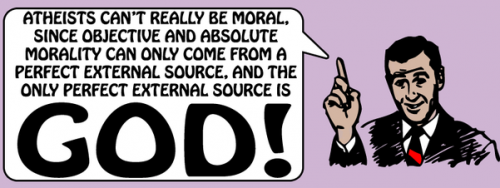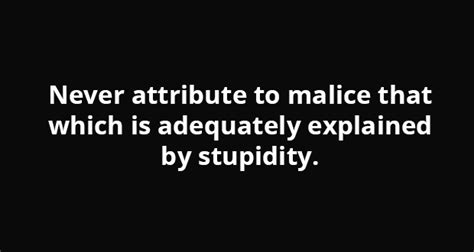I have lost what little taste I ever had for arguing with theists. It just leaves me feeling like I’m wasting my time — I’ll let Matt Dillahunty do the debates.
I got a request to join a fellow I don’t know, William Whiting, in a “fun conversation” for a podcast, for something called BasedFaithTV. Having a conversation, I can do. Unfortunately, this was just a guy aggressively asserting his Catholicism at me, and while it did start out amusing, it degenerated into an exercise session for his bigotry. It was not fun.
We got mired in a discussion about “objective morality” with no attempt to define what that is. He said he had an objective morality, while I did not (there was a lot of atheist bashing going on). It developed that what he called “objective morality” could be more accurately described as an authoritarian morality — he possessed the absolute truth granted to him by a transcendent god, therefore he was always right and I was just wallowing in the world of my subjective feelings. I guess that’s one way to define it, but I don’t think he can defend the idea that he knows what the truth is. It all boiled down to the Bible (and the Church fathers and Catholic dogma) says it, therefore he believes it. Early on, he said that he thought it would be great if the Church got a zealous Pope who would lead all Catholics on a crusade to reconquer Europe and the Middle East, which tells you something about his moral compass.
I don’t accept that version of “objective morality”. I also don’t hold a different definition, that objective morality is a universal, not subject to interpretation, because, well, we don’t know what that universal truth is. Maybe there is some moral nature immanent in ourselves, bestowed upon us by a god or by natural selection, but if so, we live lives where we struggle to discern what the best way to live is. Some people seem to think they’ve found it in their holy book, but I’m pretty sure that just leads to horror when they get their way — see the idea of purifying Europe for the Catholic church as an example. I’d also agree that atheism doesn’t exempt one from that flaw. He brought up the Communist purges, and all I can do is agree. Those were horrible catastrophes led by atheists who believed in an objective morality defined by their ideology — or more likely, saw that ideology as a tool to grasp at power.
So this is an argument that objective morality is a good thing? I don’t get it.
I personally favor the idea that an objective morality is one independent of one’s personal, subjective, transient desires, and in that sense atheists can be objectively moral. Maybe I can think I’d sure like to steal that candy from that baby, but I don’t, because I think outside my immediate impulses. I can empathize with the child — they’d be distressed and unhappy if I snatched away their sweet, and I think that I wouldn’t want to live in a world where strangers could steal my candy. I can think about consequences. I don’t want to be beat up by the baby’s mother, and I don’t want a reputation as a candy thief. I can think rationally and objectively about what kind of society would be best for me and my children, and it’s one with some accepted rules of behavior.
I don’t have possession of an absolute truth, but I can try to approach it by trial and error, trying to minimize the likelihood of my personal extinction (that’s the final arbiter of morality!), by seeing beyond the gratification of my personal impulses. That’s what an objective morality is to me — I do things I don’t like right now, because I’m capable of seeing the rewards of doing what others would like, and building a culture of mutual aid and shared community. In a sense, part of that is built in and part of human nature, since we are social animals, but there are so many different ways of building that self-supporting culture that we can’t claim one absolute way to truth.
Oh, also…I mentioned to him that I once had a debate with a Jesuit priest who impressed me greatly with his humanity and his tolerance, and that he seemed to have a very different interpretation of what Catholic morality involved, and it was the antithesis of Mr Whiting’s views. So much for an “objective morality” founded on Catholicism, because ideas there seemed to be highly diverse. His answer? That guy wasn’t a true Catholic, he was a heretic.
This conversation went on way too long and way too frustratingly, but lost any appeal near the end, when he started arguing that, as an example of absolute objective morality, gay and trans people are irreparably wrong and must repent. That’s not a pleasant conversation. That’s a guy using his claims of perfect knowledge of morality to deny the right to exist to people he doesn’t like, while claiming his bigotry is not at all subjective. I could laugh at him at the beginning, but when he tried to deny the humanity of so many people, I was increasingly dismayed and angry with this asshole, and eventually just cut him off. If he posts his podcast, I’ll let you all know, but I’ll tell you now that you won’t enjoy it.
He tried to claim that America today is his vision of Hell, because of all our liberal policies and the way liberals dominate everything. I should have realized then that he was calling from an alternate universe. Imagine his version of paradise on Earth: a European Reconquista by a militant Catholic church, followed by outlawing gay and trans people, among other regressive actions. And that is his vision of an “objective morality”.
He wants to continue our conversation. I don’t think so. I don’t talk with bigots.











